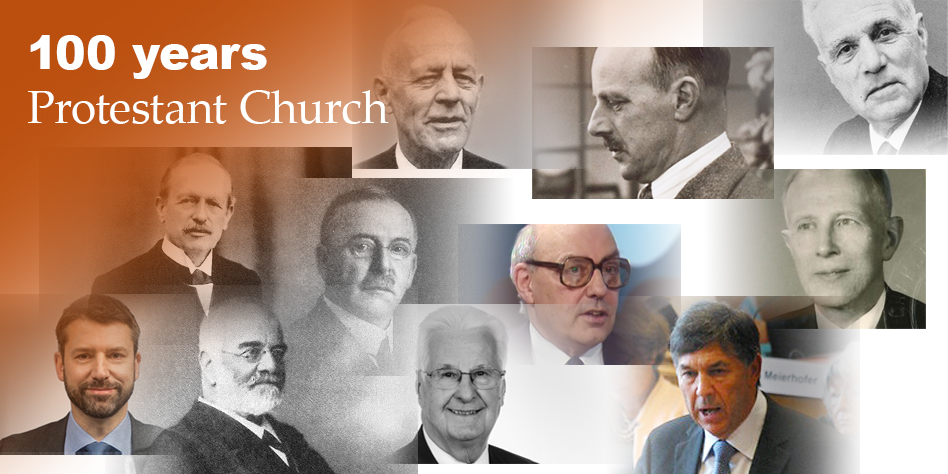
Former Presidents
A History of Church Leadership
Dedicating their efforts to Swiss Protestants, church community, the ecumenical movement, peace and intercommunication since 1920, the presidents of the FSPC Board and Council have all left behind their own particular legacy. Depending on the state of the particular source materials, we now either know a great deal or, in fact, very little about their individual lives and work. Biographical sketches of the twelve FSPC presidents to date are presented below.
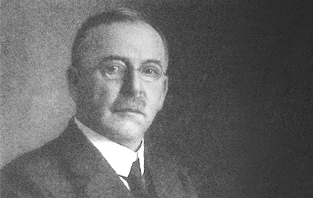
1920–1921 Friedrich Wilhelm Hadorn
• Pastor in Saanen, Köniz, pastor at the Bern Minster
• Professor for the New Testament and Swiss church history at the University of Bern
• First FSPC President
• 1925 and 1927, delegate to the World Church Conferences in Stockholm and Lausanne
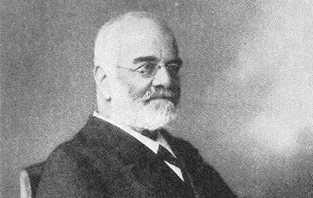
1921–1930 Otto Herold
• Pastor in Schwanden in Canton Glarus, and Winterthur in Canton Zurich
• Otto Herold connected liberal theology with a broad ecumenical scope.
• Headed the central European Office for Ecumenical Aid, 1922–1929
• He was active in the peace organization World Alliance for International Friendship Through the Churches and led an international conference in Copenhagen on interchurch aid in 1922, later participating in the Stockholm World Church Conference in 1925 and the 1927 World Conference on Faith and Order in Lausanne.
• Herold was the author of many publications on recent social history and the history of schools, missions, and the church.
• His life principle: cultivating unity while allowing divisiveness to fade.
“[The FSPC] views it as the absolute duty of Christian churches to raise their prophetic voice of love and benevolence above the chaos of human passions, and to proclaim the message of brotherhood to all people. [The FSPC] protests against every violation of humanity.” From Die Kirche im Dienst des Friedens (“The Church in the Service of Peace”) at the 1925 Stockholm World Church Conference.
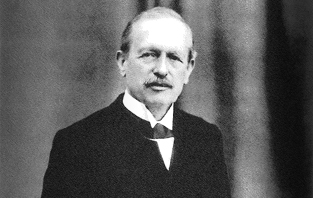
1930–1941 Eugène Choisy
• After his ordination, Choisy served in 1889–90 as the pastor of the Huguenot Church of Canterbury
• 1891–1910, pastor in Plainpalais (now Geneva)
• Between 1909 and 1939, Professor for Church History at the University of Geneva
• Several publications on John Calvin
• In 1897, he founded the Musée historique de la Réformation and in 1918 the Institut des ministères féminins
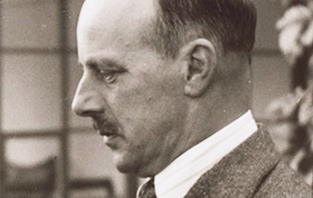
1941–1954 Alphons Koechlin
• 1910–1921, pastor in Stein am Rhein
• 1914–18, chaplain for troops at Gotthard
• Through 1954, morning preacher at St. Martin’s in Basel
• 1925, interpreter at the World Church Conference on “Life and Work” in Stockholm
• 1927–36, President of the Committee of the Swiss Association for Inner Mission and Charity
• 1933–54, his time as the President of the Protestant Reformed Church of Basel was known as the “Koechlin Era”
• 1933–40, extensive correspondence with George Bell, Bishop of Chichester, on the Kirchenkampf struggle within the church in Germany and on the ecumenical movement. Koechlin forwarded information to Bell from Germany’s Confessing Church (Bekennende Kirche).
1935-53, Member of the FSPC Board
• Koechlin was the President of the Basel Mission and was a member of the Central and Executive Committees of the newly founded WCC from 1948 to 1954. During the Nazi era, he forwarded information on the persecution of Jews to Swiss political au-thorities and called upon the government to provide greater support to the refugees.
• Engagement during the August 1942 refugee crisis and in efforts to save the Jews of Hungary in June 1944
• 1941–47, presided over the Swiss Church Aid Committee for Protestant refugees.
• 1945, represented the ecumenical movement in connection with the Stuttgart Decla-ration of Guilt
• President of Swiss Church Aid (HEKS/EPER), 1947–1954
• Viewed as one of the most important Protestant church politicians in Switzerland from 1941 through the 1950s, and as a Swiss ecumenical pioneer
• Koechlin described himself as a mediation theologian
On the occasion of the first revision of the FSPC constitution in February 1949, Al-phons Koechlin wrote: “Churches – more easily than worldly bodies – should be par-ticularly able to unite, in the freedom granted by the Gospel, for a common witness in word and deed, for common efforts on pressing tasks, and for a unified face before the world. Free of momentary economic and political constraints, they should lead the way for states and nations to find the right active solutions that avoid any constraints, articu-lating the free, inner affirmation of their own conviction.”
And he admitted after the war: “We too often did not dare to speak or act, ruled by our fear of intimidating powers.”
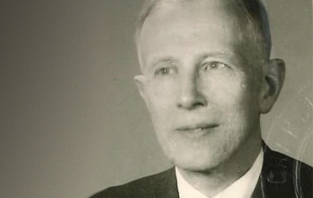
1954–1962 Henri D’Espine
• Pastor in Verviers, Belgium and Geneva
• Pastor in Champel-Malagnou 1930–1952, in Plainpalais through 1944
• 1937–1964, taught practical theology in Geneva.
• 1954–1962, member of the Central Committee of the World Council of Churches
• Follower of Karl Barth and Alexandre Vinet
• As an excellent preacher, d’Espine was a leading personality in Swiss Protestantism during and after the Second World War.
• Published a book in 1971 on his predecessor Alphons Koechlin: Alphons Koechlin, pasteur et chef d’Église, 1885–1965
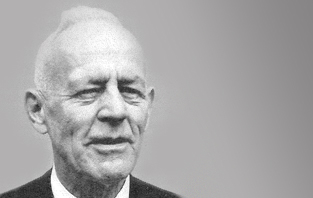
1962–1965 Adolphe Küenzi
• Title of PD Dr. phil. at the University of Bern, secondary school (Gymnasium) teacher in Biel (Ancient Greek and French)
• Supported cultural life in Biel and high-quality bilingualism
• Board member and president of the Association of Swiss Secondary School Teach-ers. A support fund for secondary school teachers was created upon his initiative.
• Member and president of the Bern Synod
• FSPC board member from 1949
• Delegate to the 2nd WCC Assembly in Evanston, Illinois, 1954
• Member of the Executive Committee of the World Alliance of Reformed Churches
• Died in a traffic accident during his term as president shortly before Christmas 1965
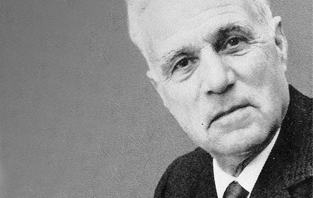
1966–1970 Alexandre Lavanchy
• Member of the Protestant/Roman Catholic Dialogue Commission of Switzerland, sig-natory in 1967 of the Joint Declaration on Mixed Marriages and in 1970 of Guidelines and Recommendations for Common Prayer and Action among the Swiss Churches.
1970–1978 Walter Sigrist
• In the 1970s, Walter Sigrist founded Vereinigung der protestantisch-kirchlichen Hilfsvereine, an umbrella organization for Protestant church aid associations. In 2007, it was renamed as Protestantische Solidarität Schweiz (Protestant Solidarity Switzer-land).
• Worked to bring about table fellowship among churches
• In 1973, signed the mutual recognition of baptism among the FSPC, the Swiss Bish-ops’ Conference, and the Christian Catholic Church of Switzerland.
• Worked in the 1970s in the Jewish-Christian Working Group, with an FSPC publica-tion in 1977, Überlegungen zum Problem Kirche – Israel (“Thoughts on the Problem of Church – Israel Relations”)
“We are in a dialogue with this world. The world sets its agenda for us. It is the world that asks the questions. But as we are the church, it asks us not only about the shape of society but about God as well. It asks not only about improving human existence but about salvation as well. It asks about a future in peace. In this dialogue, we are faced with the issues that move the world – but as the church, this does not entail our provid-ing yet another analysis alongside others or a better program alongside existing pro-grams, but bearing witness to Christ as head of the church, redeemer of humankind, and savior of this world.”
Walter Sigrist in his address as president before the Summer Assembly of Delegates in 1971
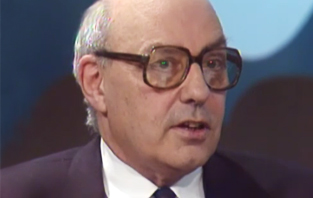
1978–1986 Jean-Pierre Jornod
• Studied at the Protestant Faculty of Paris, which was interrupted by his deportation between 1942 and 1945. He completed his degree in Geneva in 1947.
• Pastor in France: in Vincennes near Paris and in Pontarlier until 1958; then in Thônex, Canton Geneva
• 1966 through 1978, General Secretary of the Geneva Church (EPG)
• Welcomed Pope John Paul II in Kehrsatz, Canton Bern during his 1984 visit to Switzerland
• Until shortly before his death, he continued to be very actively involved in the launching of an ecumenical consultation on the economic and social future of Switzerland.
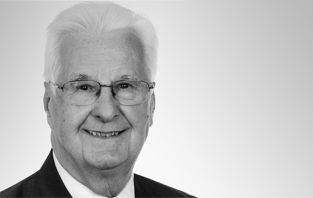
1986–1998 Heinrich Rusterholz
• Parish pastor in Dürnten, Canton Zurich
• Four years of activity on behalf of the Basel Mission in Sabah, Malaysia
• 1970–1986, head of the Pastoral Office for Ecumenical Affairs, Mission, and Developmental Issues for the Evangelical Reformed Church of the Canton of Zurich
• Actively involved in the cooperation among European churches, with the aim of deepening the community among Europe’s Protestant churches
• 1996–2001, Executive President of the Leuenberg Church Fellowship
“Our society stands for ‘Christian values’. It is therefore reliant on the witness of freedom in Christ. May the PCS shine this amicable unity upon the entire country. In the words of Paul, may its ‘gentleness be known to everyone’ within and beyond our borders in the ecumenical world and in bilateral relations with churches currently in peril in Asia and Africa. They, too, need friends in the land of the Reformation.”
Heinrich Rusterholz in his address upon the 100th anniversary of the FSPC
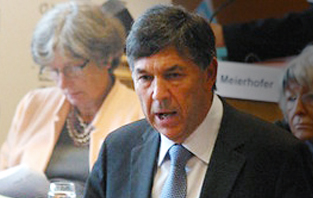
1999–2010 Thomas Wipf
• Theologian and pastor Schönenberg, Canton Zurich, industrial chaplain
• 1987–1998, delegate to the FSPC Assembly of Delegates
• 2004–2010, Member of the Executive, Conference of European Churches (CEC)
• 2006–2012, President of the Communion of Protestant Churches in Europe (CPCE)
• 2006–2010, Chairman of the Swiss Council of Religions (SCR), which was initiated by him.
• Co-initiator of the Open Forum Davos
• Moderator/President of the European Council of Religious Leaders (ECRL)/ Religions for Peace, from 2012
“Many people expect a well-founded contribution on the part of the Protestant churches towards the solution of urgent sociopolitical issues. The coexistence of people with different cultural and religious roots is a challenge that demands a clear analysis, patience, pragmatism, and creativity. It is not only a matter of solving problems but also one of opportunities for mutual enrichment. We must no longer leave topics concern-ing integration to political agitators.”
Thomas Wipf in his 2010 FSPC farewell address
“The profile of Protestantism includes, first and foremost, a gratitude for God’s gifts, without first having to fulfill any requirements of our own. ‘You are free through Jesus Christ’, the Gospel tells us all, ‘you need not have concern for yourselves’. This trust, granted to us, is the reason why we can live in confidence. So much derives from this that is dear to me: an ultimate sense of security and consequently a strong sense of hope, the revelation of how precious each human being is to God, the freedom to experience different viewpoints and ways of living as an enrichment to all, the invitation to creatively participate in human coexistence, the encouragement to work for that which is close to our hearts, even when it means going against the tide. Thinking about this ‘Protestant profile’ is, in particular, also a point of departure for greater ecumenical proximity and for overcoming supposedly divisive elements between confessions. As Protestants, we need to be complemented by our sister churches: the Catholicity that connects cultures, beauty as a means of praising God in Orthodox liturgy, the enthusiasm of Pentecostal congregations.”
Thomas Wipf, in an interview preceding the CPCE General Assembly in Budapest, 2006
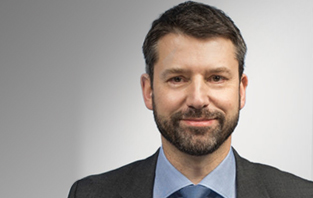
2011–2020 Gottfried Locher
• 1993, ordination as pastor in the Evangelical Reformed Church of Canton Bern
• 1994–1999, pastor of the Swiss churches in London
• Doctorate in Systematic Theology (on the reformers’ understanding of church), King’s College, University of London, 2000
• 1999–2001, Delegate for Ecumenical Affairs
• 2001–2005, Director of Foreign Relations, FSPC
• 2002–2005, President of the World Alliance of Reformed Churches, Europe
• 2006–2010, Director of the Institute for Ecumenical Studies, University of Fribourg
• 2008–2010, Synod Member, Reformed Churches of the Cantons Bern-Jura-Solothurn
• 2012–2020, Member of the CPEC Executive, Executive President from 2015